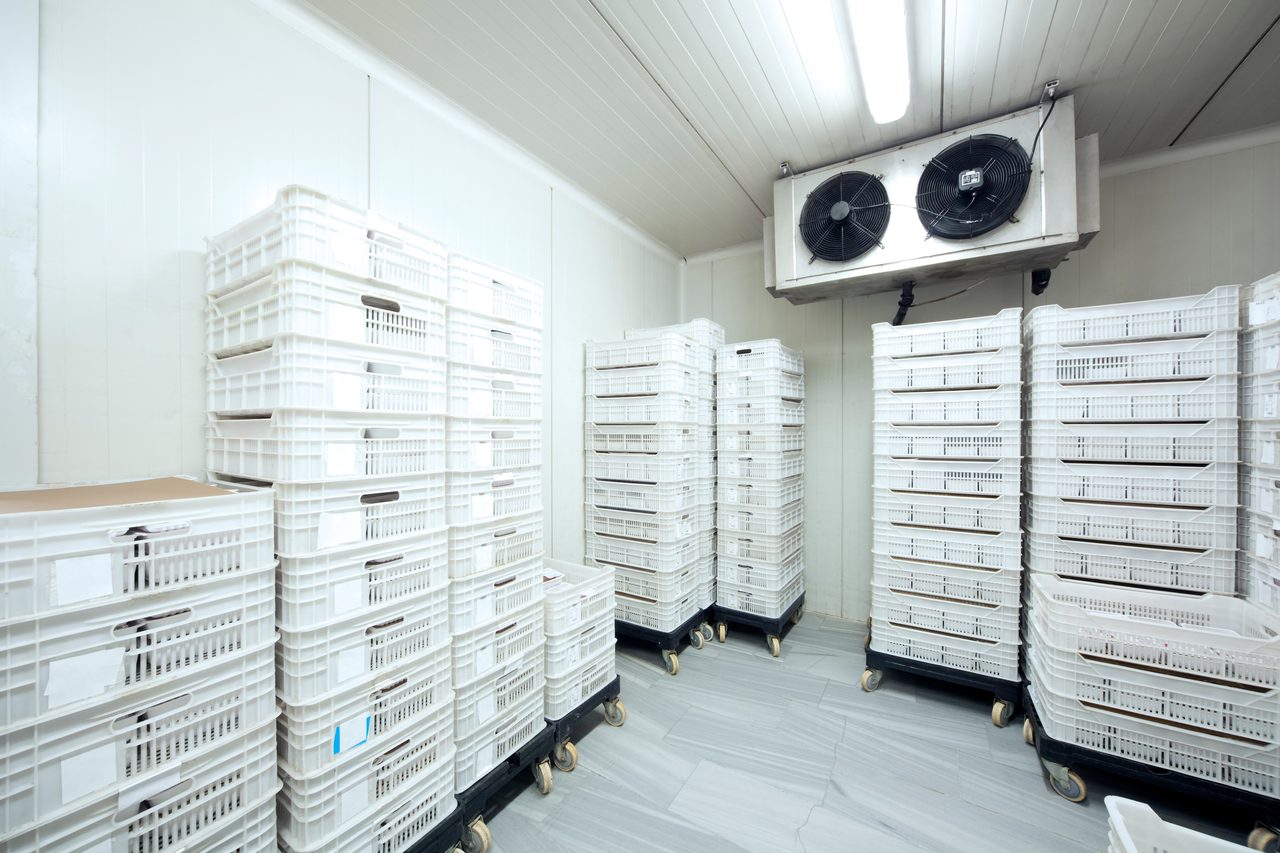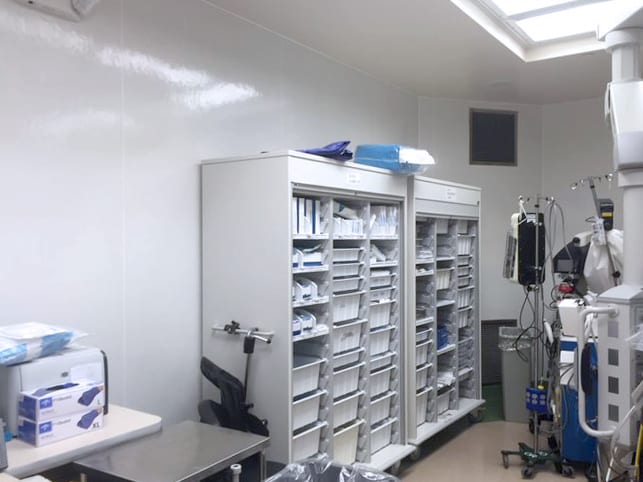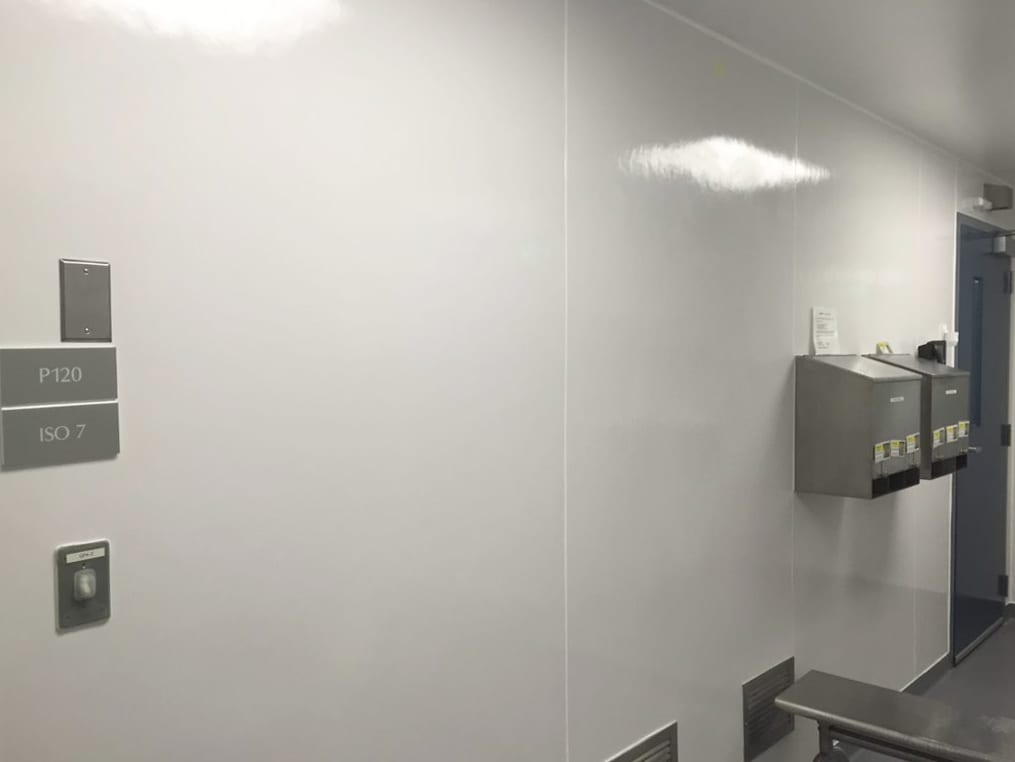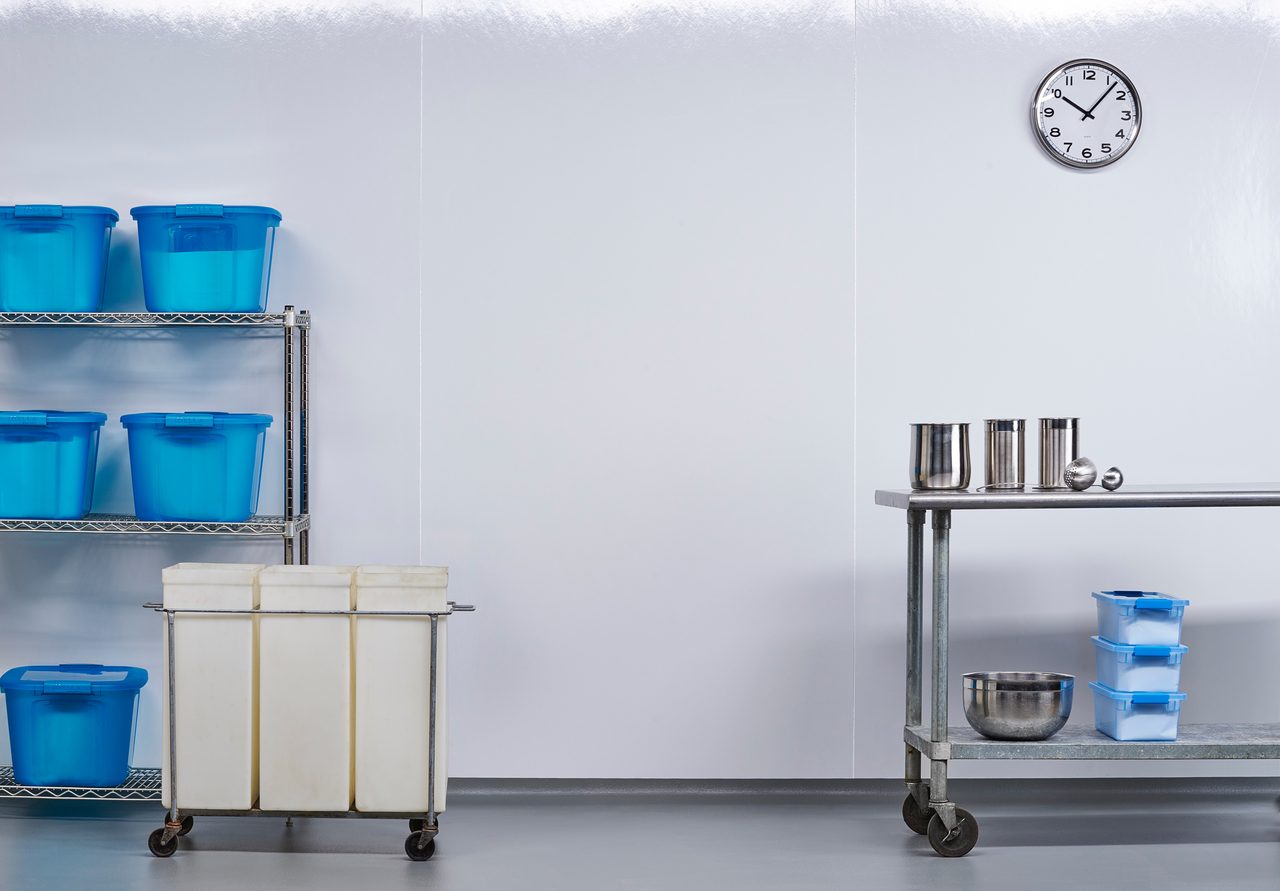The case for Fiberglass-Reinforced Panels. By Amanda Storer
Improved Performance, Greater Durability


Improved Performance, Greater Durability
The case for FRPs. By Amanda Storer
Improved Performance, Greater Durability
The case for FRPs. By Amanda Storer
For buildings that manage food production or pharmaceutical manufacturing, the stakes are much higher when it comes to selecting the right interior wall systems. These facilities have much more stringent requirements when it comes to cleaning and sanitizing, making them harsh environments for walls and ceilings. Long-term durability is critical.
For such facilities, fiberglass-reinforced panels are cost-effective, easy-to-install interior wall panel systems that deliver lower maintenance requirements, stronger durability, improved chemical resistance and maximum sanitation. While FRPs initially come with a higher price than steel panels, the advantages they offer deliver cost savings and benefits over the long haul.
Consider that FRPs are flexible and have a higher resistance quotient when compared to steel, making them more resistant to impact. FRPs do not conduct electricity or break down from corrosives, therefore bolstering safety.
The greatest advantage FRPs deliver are corrosion resistance. Fiberglass does not corrode and offers a longer life span than steel with direct exposure to acids, salt, oil, and other common corrosives that are ever-present in environments charged with cold storage, food production, or the manufacturing of pharmaceutical products. Despite frequent exposures to harsh substances, FRPs can last more than 20 years in the same environments and are lightweight and easy to install on site.
FRP insulated metal wall panels take the case for durability to the next level. They are engineered with a seamless joint to prevent water intrusion and bacterial growth. With pre-application of a fiberglass-reinforced plastic panel, FRP becomes even more resistant to a harsh environment, and the configuration minimizes maintenance. The seal system creates a durable bond, unlike silicone sealants that can deteriorate under frequent cleanings. For food production, processing rooms, and pharmaceutical manufacturing facilities with frequent wash-downs, this limits production pauses for resealing panels and cleaning.
Beyond being resistant to mold, mildew, and rot, FRP panels also offer a value proposition when it comes to energy efficiency. As an insulated metal panel, they deliver a superior R-value for any controlled environment, meeting USDA and FSIS requirements. This makes them ideal for cold-storage and food processing facilities.


Case in Point: Mortillaro Lobster
Gloucester, Mass., is home to Mortillaro Lobster Co. where they clean and ship lobsters around the world. The 6,000-square-foot processing facility and lobster storage tank was updated in 2015 to expand functionality for the company. The updated facility is used to unload fresh lobsters, bait, and other fish, as well as provide storage space and a packing area for fresh lobsters being readied for transport.
To ensure no ceiling seams aligned above the new tank and to provide optimal insulation, the project team selected 30-foot CF-42 FRP CleanSeam panels to span the ceiling. The walls of the facility used the FRP panels to deliver a durable, sanitary solution for easy cleaning.
“When a wall meets a ceiling, you typically have a piece of visible trim, but with FRP CleanSeam, you epoxy caulk that seam, and it’s not visible at the joints, and you don’t see the corners or seams at all,” says Ed Montani, sales engineer with Controlled Environment Systems, the installer for Mortillaro Lobster. “With this FRP system, you’re not dealing with coated metal that corrodes. There are big advantages for high wash down areas like the very salty environment for these lobsters.”
FRP CleanSeam enables wall and partition panels to join seamlessly with a two-part caulk system, blending the panels together to form a flush surface hard seam. This system eliminates a penetrable space and makes it more effective than surface-applied silicone seams that deteriorate under the rigorous cleaning required to sanitize a place such as Mortillaro Lobster.
A Smart Business Case
FRP wall panels are versatile, low-maintenance, and resilient for high-use, harsh wash-down environments. Utilizing FRP technology delivers a return on investment with no shutdowns for seam repair and cleaning, and a more sanitary environment. That translates into less business interruption and long-term peace of mind.
Images courtesy of Metl-Span/Nucor Co.
Amanda Storer is the marketing brand manager for Metl-Span, part of the Nucor Co., based out of Lewisville, Texas. She oversees all aspects of Metl-Span brand positioning in the marketplace, including strategic messaging, digital presence and marketing tactics. Storer possesses more than 15 years of experience of product management, marketing research and insights, key account development and sales within B2B markets. She is the current co-chair of the MCA IMP Funders Marketing Committee.
